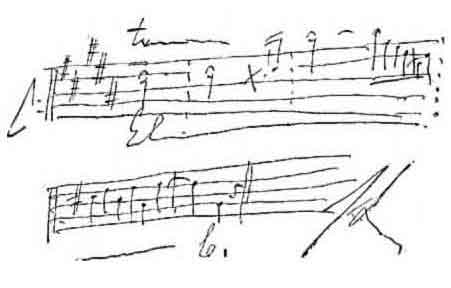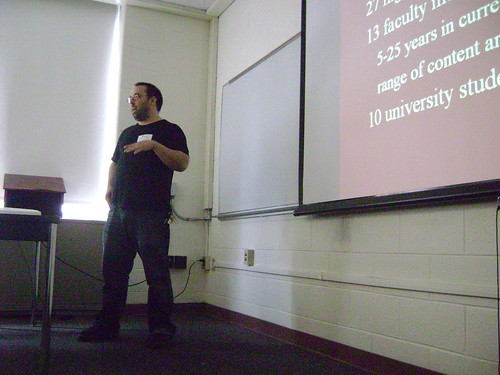Unshouldering the burden

Still wrapping up my thoughts from EdCamp Philly, I wanted to make sure that I put down a few thoughts that sprung to mind while in a session with Kevin Jarrett, Mary Beth Hertz, and Rob Rowe.
Flavio Canto, Judoka and Brazilian Jiu Jitsu black belt was speaking about his techniques, teaching, competing, and his drive to compete. The magazine interview has been long lost and the exact quote has long left my mind but the essence of his remarks were something like this:
I give away my techniques to my enemies in order to force myself to become better. I want to know that I am the best with no secrets and no excuses.
When I read that interview, I remembered something that had happened to me years earlier. I was recently out of undergrad and working in a bookstore’s database department on South Street. One of my coworkers was a writer and invited me to a writers’ get together in South Philly. Being a composer and fan of creative speak, I went along to this open house.
The small home was abuzz with talk of ideas, character discussion, critiques of plots and dialogue, and in a small crowd in the middle of the living room attention turned to me. “So what do you do?” I told them that I’m a composer and started telling the group about a piano piece that I was writing. Thinking that this would be a sympathetic crowd, I shared my current problems regarding the piece. I told them that I was “writing this piece for piano and I am in love with the thematic material.” They leaned in, eager to hear about my process and I was encouraged to continue. Sure that they would understand, I confessed “I like the material so much that I haven’t finished it for fear of ruining it in my mind. It’s really great and I don’t want to destroy the purity of the theme while exploring the development.”

They looked at me like I had three heads. Three ugly heads. With “I hate writers” tattooed on my eyelids. One of them spoke, “Who do you think you are?” I stared back at him. “It’s not yours. I might need that piece and you do not have the right to keep it.” The growing crowd (really, it grew and I think that someone turned the heat on) nodded in agreement. “You need to go finish that piece,” someone said. “I can’t believe you haven’t finished it yet,” said one of the throng. A few people walked away. “How long have you been letting it sit?” someone asked. I didn’t have an answer.
This experience is fresh in my mind. I can still feel the tension. It drives me, though. I think of Flavio Canto. I think of that weird Woody Allen-esque dude in South Philly. I think about how silly I am thinking that I own any of the ideas that come out of my head.
I become protective of my research, of my classroom management strategies, my course design, and my methods of increasing achievement. We all do. We have our pets. We have things that we share when asked. We plan those moments carefully so we do not give away all of our secrets. Why?
Feeling plugged up in your classroom approach? Could it be that you are shouldering a burden that is too great to bear? Education, I am finding, is something that demands to be given away. The same way that a quality story must be read and good music demands participatory listening, education requires action–and not simply the execution of the lesson. It requires sharing, grooming, perfecting, adapting, and giving away of all that you have so that it may reach its potential–without you. Your brilliant ideas will develop and become epic without you…yes, it’s true. Someone will do it better. Be proud. Now do it again. And again.
We think that we own it. Foolish, isn’t it? We protect it like a jealous love or a protective parent. Worse is when we think that it’s not that big a deal, that’s it’s not worth sharing. Also foolish. What are your confessions?
